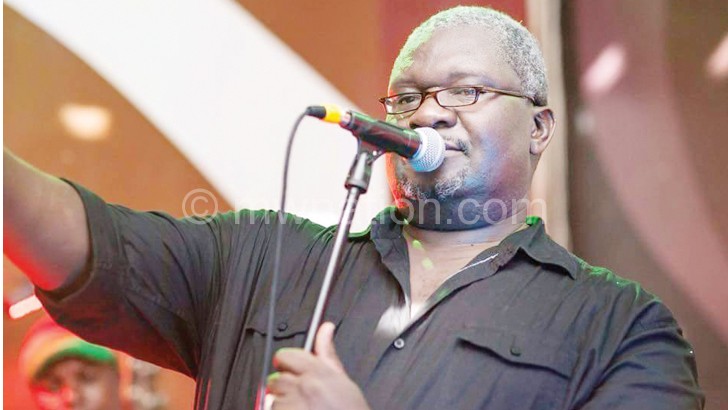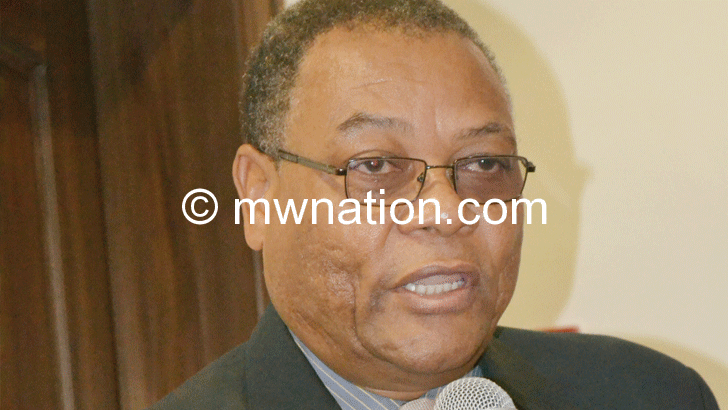Foreign music takeover
Digital migration promises more media stations, but Malawian artists lament lack of airtime as Macra licenses 104 electronic media houses. JAMES CHAVULA writes.
It is not cast in stone, but it is no toilet paper.

The Malawi Communications Regulatory Authority (Macra) has licensed 78 radio stations and 26 television houses—and all of them are obliged to devote 60 percent of airtime to local content, including music.
For the regulator, the license to broadcast is a law tablet, not a matter of ifs, what-ifs, maybes and buts.
However, the depressing reality is not only do broadcasters seem to love to ignore local music, they are also not policed when musicians cry foul.
The musicians themselves, including their mother body, do not seem to know they have the power to demand foreign music gets no more than four songs in every 10.
The quantity and quality of local content has come under the spotlight as television stations are switching off analogue signal and migrating to digital broadcasting—a shift that promises crystal clear pictures and sounds as well as more space on the spectrum.
“The country stands to reap the digital dividend as the frequencies freed up will take more radio stations, television channels, internet service providers, emergency services as well as walk-talkie services used by the police, defence forces and other security agents,” says Gideon Munthali, digital migration coordinator in the Department of Information.
However, the promise of more stations hardly excites local musicians and other artists who have seen the number of media houses multiply but the quantity of local content either remaining stagnant or dwindling while the overload from abroad broadens.
Some licensees may not have rolled out, but all of the active houses are found wanting when it comes to fulfilling the quota assigned to local talent.

to an understanding
Lucius Banda wants more. The artist will today perform live when Minister of Information and Civic Education Patricia Kaliati launches Malawi Digital Broadcasting Network Limited’s Kiliye Kiliye decoder, which currently carries 18 TV channels and eight radio stations, at Mzuzu Upper Stadium.
He feels the 60:40 ratio will keep shutting out deserving artists who would improve their act if there was more visibility and competition.
Lucius wishes local content was assigned about 70 percent of broadcast time like their Kenyan counterparts.
In August, some musicians in the east African country marched on the streets of Nairobi, demanding more airplay than Nigerian and South African songs.
“Malawian musicians would be justified to stage a strike, but we don’t have to get there.
“We have more radio stations than we had in 1998, but the situation is getting worse. Whereas Malawian music used to dominate when we had MBC alone, now we have many radio stations that don’t seem to care about local art. It is sad that almost 80 percent of songs on air are foreign,” he says.
Lucius is a poster boy of the country’s break with autocratic rule, having broken through with the groundbreaking Son of a Poor Man shortly after founding president Kamuzu Banda’s fall from power in 1994.
He split the difference in the passage of time, saying: “When there was one radio station, you only needed MBC to play your song once for the whole country to know there was a new hit. Now, you need all stations to play it. If one doesn’t, almost one million will not hear it. They will be tuned in to other broadcasting houses.”
Many artists are still groping and whining in the dark.
“When we speak out, some stations tell us off that it’s their business and they have the liberty to play foreign music because the quality is better. It’s democracy, baba,” Lucius said.
But the quota of local content is not negotiable, says Macra director of broadcasting Zamdziko Mankhambo.
According to Mankhambo, Macra is aware of the low quality and quantity of local content broadcast by local stations.
He said: “All licensed broadcasters are required to make sure that foreign content does not exceed 40 percent of their programming and this applies to music as well. However, we are aware that most of them are not adhering to this requirement.”
Macra was established to make sure they all play by the rules of the game.
The lack of airplay for local artists testifies to laxity in law enforcement, but Mankhambo says time is almost up for this.
“We’ll soon crack the whip. Be assured we’ll continue monitoring the broadcasts and taking action to enforce compliance,” he said.
However, Dr Benson Tembo, who advises Macra on digital migration matters, feels the sanctions will be preceded by consultations with broadcasters to define “Malawian content” and “appreciate their challenges” so that they come to a common resolution.
“We will not use force, but dialogue until we come to a common understanding,” says Tembo, who was previouly MBC director general.
The call comes at a time most broadcasters are failing to meet their obligation of remitting loyalties for music played to the Copyright Society of Malawi. The costs could be one of the reasons the broadcasters, some of which dedicate all night to foreign content, sometimes shun local content.
Music Union of Malawi president, the Reverend Chimwemwe Mhango. said: “This is an eye-opener, but we have been pushing for more airtime for a long time.
“With the launch of the Buy Malawian campaign, we are engaging some stakeholders, including the Ministry of Information and Civic Education, to lobby for change,” he said.
He spoke of a strategy comprising negotiations with the ministry and major broadcasters.
“We’ll give dialogue a chance and plead with relevant stakeholders before we consider other means,” said Mhango.
The MUM president found all stations wanting, including the State-owned MBC radios and television which are supposed to be free from non-adherence in the first place.
However, the gravity of the problems mirrors a glaring gap the country must confront as it looks forward to the mushrooming of more media houses on the fertile seedbed termed digital migration.





